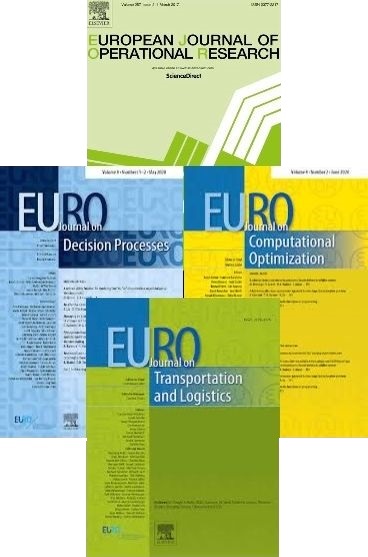Special Issue: Constraint Programming Approaches to Combinatorial Optimization
Guest Editors: Louis-Martine Rousseau and Willem van Hoeve
- Deadline for submission: June 30, 2013
Combinatorial Optimization is at the heart of many real-world applications, while at the same time it is a vibrant and intellectually challenging field of research. Some well-known application areas of combinatorial optimization are vehicle routing, employee scheduling, strategic planning, (financial) asset optimization, production scheduling, timetabling, to name just a few. In this world with ever-more available digital information, the developments in the field of combinatorial optimization are increasingly more important to our society.
The different contexts in which combinatorial problems arise have led to a variety of solution techniques. For example, in Operations Research (OR), the traditional application areas include logistics, supply chain management, and resource allocation problems, while the solution methodology is most often based on integer linear programming, or more generally mathematical programming. On the other hand, the field of Artificial Intelligence (AI) has historically studied applications such as motion planning, pattern recognition, and learning. Most solution methods in AI for combinatorial optimization utilize specialized search algorithms and constraint reasoning techniques.
Based on a systematic search procedure and constraint propagation, Constraint Programming (CP) has been the main paradigm for the integration of techniques from OR and AI in the last decade. It has fostered the development of new methodologies such as logic-based Benders decomposition and CP-based column generation while providing a framework for state-of-art algorithms for solving both challenging new applications, such as radio therapy planning (IMRT), and fundamental combinatorial optimization problems such as max-clique or graph coloring.
We invite papers that combine ideas from algorithmic combinatorics, mathematical programming, and artificial intelligence in the context of Constraint Programming Approaches to Combinatorial Optimization.

This work is licensed under a Creative Commons Attribution-ShareAlike 3.0 International License and the GNU Free Documentation License (unversioned, with no invariant sections, front-cover texts, or back-cover texts).
